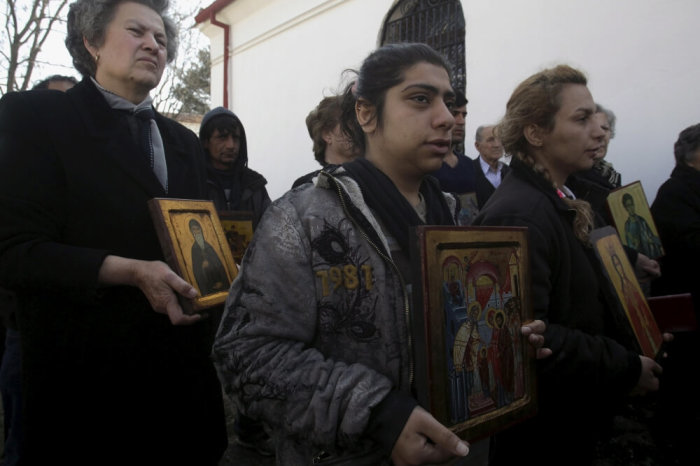Iran Religious Persecution Increasing Despite Nuclear Deal, USCIRF Reports

The United States Commission on International Religious Freedom has found that religious minorities in Iran, including Christians, continue experiencing severe human rights abuses, closing in on one year on the historical nuclear deal between the Islamic Republic and Western nations.
The major report, released only a couple months shy from the one year anniversary of the nuclear deal reached in July 2015, found that religious freedom conditions "continued to deteriorate" over the past year, with Christians, Baha'is, and the minority Sunni Muslims facing the most persecution at the form of harassment, arrests, and imprisonment.
The key findings noted that under President Hassan Rouhani's administration, the number of religious-based arrests has increased, despite Iran's continuous denial that it is violating people's human and religious freedom rights.
"The government of Iran continues to engage in systematic, ongoing, and egregious violations of religious freedom, including prolonged detention, torture, and executions based primarily or entirely upon the religion of the accused," the report stated.
USCIRF explained that throughout 2015 and in 2016, Christians have continued to face arrests and imprisonment, particularly concerning Evangelical converts. It noted that as many as 550 Christians have been arrested and detained since 2015, and at least 90 Christians remain in prison or detention as of February due to their religious beliefs and activities.
"During the reporting period, human rights groups inside Iran reported a significant increase in the number of physical assaults and beatings of Christians in prison. Some activists believe the assaults, which have been directed against converts who are leaders of underground house churches, are meant to intimidate others who may wish to convert to Christianity," it stated.
The report noted that neither Shi'a nor Sunni Muslims who call for reform in the country are spared prison either, with at least 150 Sunnis currently in prison for their beliefs and religious activities.
"Leaders from the Sunni community have been unable to build a mosque in Tehran and have reported widespread abuses and restrictions on their religious practice, including detentions and harassment of clerics and bans on Sunni teachings in public schools," the report said.
"Additionally, Iranian authorities have destroyed Sunni religious literature and mosques in eastern Iran."
The largest non-Muslim religious minority in Iran remains the Baha'i community, who number somewhere around 300,000, and are branded as "heretics" by the government, facing repression on the grounds of apostasy.
One of the main forms of oppression the Baha'i community faces comes in the form of education, with USCIRF stating that many youth from the community who scored very high on standardized tests were either denied entry into university or expelled during the academic year after education officials found out their religious identity.
Religious freedom advocate groups, such as the American Center for Law and Justice, had urged last year that Iran must first prove its commitment to improving its human rights record before a nuclear deal should be made.
President Barack Obama hailed the deal last year as a "new chapter." "Today, after two years of negotiations, the United States together with the international community has achieved something that decades of animosity has not: a comprehensive long-term deal with Iran that will prevent it from obtaining a nuclear weapon," Obama said in July.
USCIRF mentioned the deal in its report, but said that it continues to call for sanctions against Iran's violations of human rights, its continued support for terrorism, and its ballistic missile program.
It added in its recommendations that the American government should continue to work closely with its European allies to pressure the Iranian government to improve that record through a combination of advocacy, diplomacy, and targeted sanctions.




























